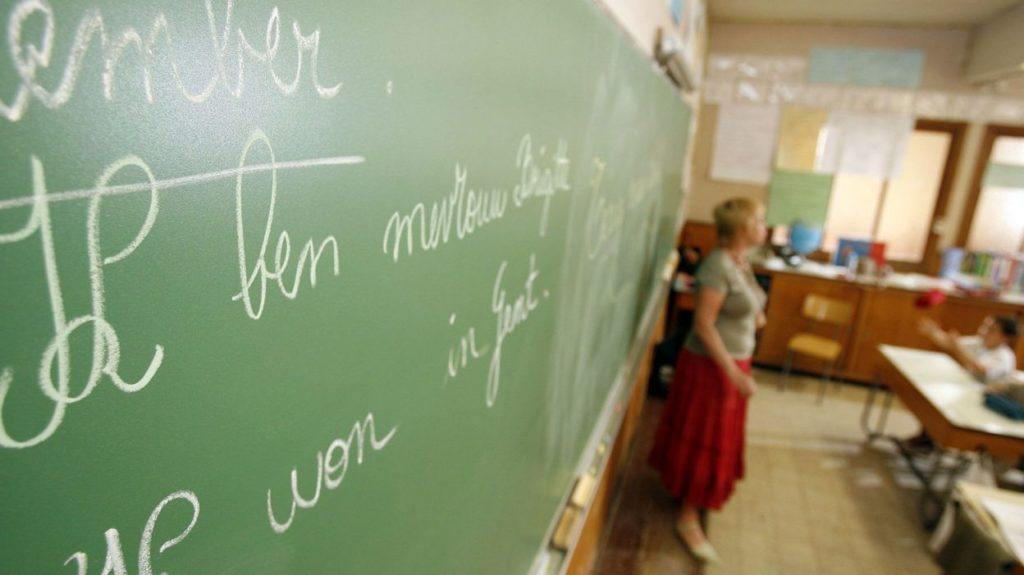Just one in three pupils starting secondary school in Wallonia has chosen to study Dutch as their second language in 2021, reportedly the lowest this number has ever been.
Meanwhile, English is growing in popularity among students in the region, according to figures released by Christophe Deborsu, a journalist at RTL.
"In 2020-2021, according to the official figures I have just obtained, the language choice of Walloon pupils in secondary 1 is as follows: 64% English, 34% Dutch, 2% chose German. Dutch has never been so low," Deborsu posted on Twitter.
En 2020-2021, selon les chiffres officiels que je viens d'obtenir, le choix des élèves wallons en première secondaire est le suivant: 64% anglais, 34% néerlandais, 2% allemand. Jamais le néerlandais n'a été si bas. Wat het filmpje in Nijvel betreft: sorry voor dat 'kotsen' pic.twitter.com/XHl3TyqyD7
— Christophe Deborsu ? (@ChDeborsu) September 27, 2021
This raises the question of whether studying Dutch as a second language should become compulsory in Wallonia.
Since 2004, teaching French has been compulsory in the fifth and sixth years of primary schools in Flanders, and foreign language initiation, with priority to French, is encouraged across all grades in primary schools in the region. Both Dutch and French are compulsory language subjects in the Brussels region.
However, learning Dutch is not compulsory in Walloon schools, where pupils can choose what language they want to learn as a second language and are given the choice between English, German or Dutch, meaning a student in the region can graduate from school without ever having spoken Dutch.
Looking back to one decade ago, the number of Walloon pupils in first secondary education choosing to learn Dutch was at a similar level as those wanting to learn English as a second language. But since then, the popularity of Dutch has been declining year by year, according to Deborsu.
Related News
- Multilingualism in Brussels 'key to success of children'
- Flanders ends face masks in secondary schools, Brussels does not
- Quarantine rules eased in primary and nursery schools
"Dutch is a difficult language and English is, of course, popular because of social media, the internet, informatics...," he said, according to reports from VRT News, adding that the political breakthrough of the right-wing N-VA party has played a role, "as many Walloons are of the opinion that there is no point in learning Dutch if the country is going to split soon."
According to Deborsu, the region's political parties are discussing making it compulsory for Dutch to be taught in schools.
In June this year, the Walloon government promised to promote the learning of Dutch as part of its €10 billion plan to revive the economy in the region, arguing that a knowledge of both languages is vital to get a job.
However, the lack of native Dutch-speakers who are able to teach the language in French-speaking schools is also impeding an equal representation of Dutch in education.
"We would like to have native speakers for that job, but as teachers are paid 10 per cent more in Flanders, we have difficulty attracting them," André Grenier, director of the Walloon Brabant education policy, told RTL.

